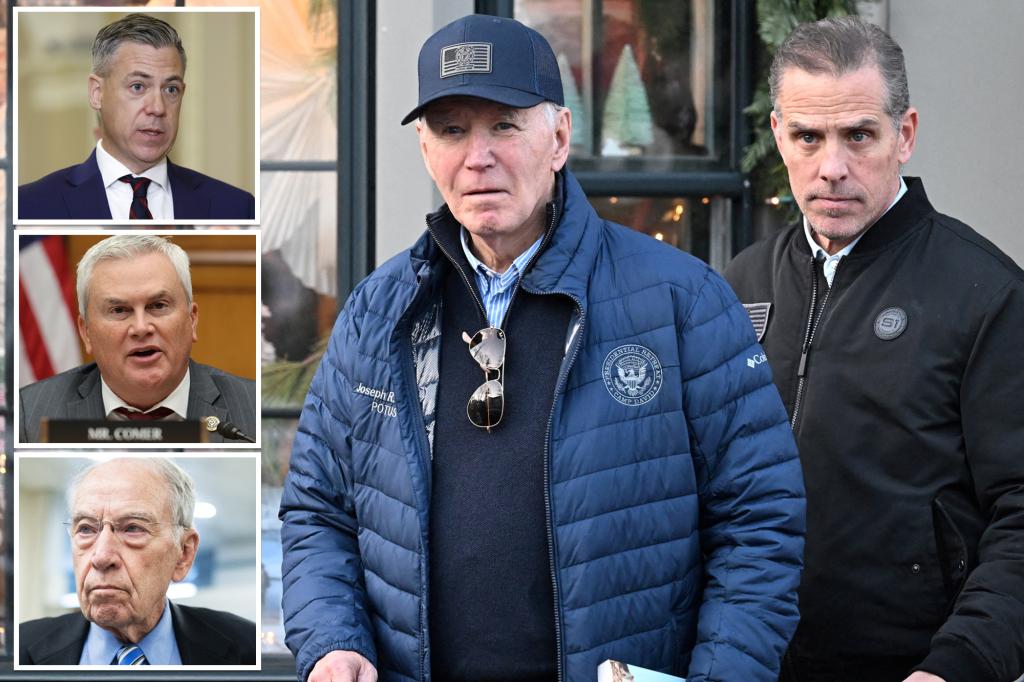Congressional Republicans have sharply criticized President Biden following his recent pardon of his son, Hunter Biden, for felony gun charges and tax-related misdemeanors. This decision has ignited a firestorm of backlash, particularly from Senators like Chuck Grassley of Iowa, who expressed shock and disappointment at the perceived contradiction to Biden’s previous assurances that he would not intervene in his son’s legal matters. The pardon was announced just weeks after Hunter had entered guilty pleas related to financial discrepancies that totaled around $1.4 million, which further intensified scrutiny surrounding the Biden family.
Republicans have utilized this opportunity to not only question the integrity of President Biden’s statements but also to suggest a deeper pattern of dishonesty regarding Hunter’s legal troubles. Senator Tom Cotton of Arkansas highlighted the dichotomy between a parent’s instinct to protect their child and the deeper concerns of public trust, accusing Biden of misrepresenting his intentions leading up to the election. The sentiment that Americans could empathize with a father yet remain troubled by apparent lies was palpable across various GOP responses, underscoring a breach of trust between the Biden administration and the electorate.
Leading up to the pardon, Biden and his administration had firmly stated their position on Hunter’s legal issues. White House Press Secretary Karine Jean-Pierre had publicly dismissed inquiries about a potential pardon, maintaining the firm stance that the president would not intervene. This culminated in Republican assertions that Biden’s actions contradicted his previous statements and promises, thereby reinforcing feelings of betrayal among critics. Representative James Comer, chair of congressional investigations into Biden family matters, argued that Hunter’s legal issues were only a surface-level reflection of more significant corruption allegations against the Biden family.
Upon announcing the pardon, President Biden emphasized his belief that Hunter’s prosecution was influenced by political motivations, framing it as an unjust action against his son. This pardon covers offenses for which Hunter might have been involved from January 2014 to December 2024, a time period coinciding with pivotal moments in his business dealings abroad, particularly with Burisma, a Ukrainian energy firm. Biden’s rationale has ignited a renewed discussion about potential conflicts of interest stemming from his son’s business engagements while he served as vice president.
Republicans have seized the moment to dive deeper into Hunter Biden’s foreign business transactions, particularly allegations of influence peddling linked to Joe Biden’s vice presidential tenure. With the opening of an impeachment inquiry last year that sought to determine if the President engaged in any form of abuse of power related to these activities, many Republicans have expressed their belief that the pardon undermined assertions that there was no wrongdoing. Representative Jim Jordan questioned the integrity of earlier statements dismissing the inquiry’s validity, noting the timely nature of the pardon concerning the exact periods being investigated.
In conclusion, the pardon granted to Hunter Biden stands as a pivotal moment in the ongoing discourse surrounding the Biden administration, corruption allegations, and questions of integrity. Republican leaders have framed the pardon as emblematic of a larger pattern of misconduct and deceit, painting a narrative of a President willing to defy his own words to protect his family. The fallout from this decision is likely to reverberate in political discussions, particularly as the consequences of Hunter’s actions and the implications for President Biden’s credibility continue to be scrutinized by opposition parties.

